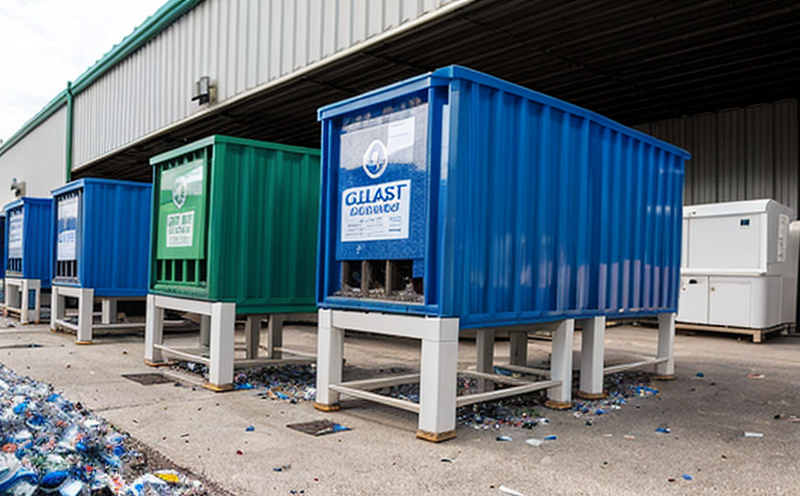EN 12927 Ceramic Waste Gloss Measurement
The EN 12927 standard is pivotal in the assessment of ceramic waste, specifically focusing on measuring its surface gloss. This measurement is critical for ensuring that recycled materials meet the specified quality standards required by industry and regulatory bodies.
This service plays a significant role in waste management and recycling testing, particularly within the sector of glass and ceramic recycling. The ability to accurately measure the gloss of ceramic waste helps in determining its suitability for reprocessing into new products or applications. This measurement ensures that the recycled materials are consistent with quality expectations set by industry standards.
The test is conducted on a variety of ceramic waste specimens, which may include broken tiles, ceramics, and other similar materials. The process involves precise specimen preparation to ensure accurate measurements. Once prepared, the specimens undergo gloss testing using an advanced instrument that adheres strictly to EN 12927 guidelines.
The results provide crucial insights into the recyclability of ceramic waste, helping stakeholders in the recycling industry make informed decisions about the use and reprocessing of these materials. This service supports compliance with international standards such as ISO 20673-1, which further emphasizes the importance of accurate measurement.
The significance of this test extends beyond mere compliance; it also aids in optimizing resource recovery processes by identifying suitable waste streams for recycling. By ensuring that recycled materials meet specific quality criteria, this service contributes to more efficient and sustainable manufacturing practices.
In addition to its practical applications, the EN 12927 standard is part of a broader framework aimed at reducing landfill waste and promoting circular economy principles in the ceramic industry. The accurate measurement of gloss helps in assessing the performance of recycled ceramics in various end-use applications, thereby enhancing product quality.
The service provided by our laboratory not only adheres to the strict requirements set forth by EN 12927 but also offers a comprehensive approach to waste management and recycling. Our team of experts ensures that every step of the process—from specimen preparation to final measurement—meets the highest standards.
The importance of this service cannot be overstated, especially in an era where sustainability is at the forefront of many industries. By providing accurate and reliable gloss measurements for ceramic waste, we contribute to a more sustainable future by ensuring that recycled materials are high-quality and suitable for reprocessing.
Applied Standards
| Standard Reference | Description |
|---|---|
| EN 12927:2003 | Method for the measurement of gloss of non-metallic materials (ceramic waste) |
| ISO 20673-1 | Recycled glass and ceramics—Part 1: Quality requirements |
Why Choose This Test
- Comprehensive compliance with international standards.
- Precision in measuring the gloss of ceramic waste specimens.
- Support for sustainable recycling processes and circular economy principles.
- Enhancement of product quality through accurate measurement.
- Optimization of resource recovery processes by identifying suitable waste streams.
International Acceptance and Recognition
The EN 12927 standard is widely recognized and accepted across the globe, making it a preferred method for measuring the gloss of ceramic waste in various industries. Its acceptance ensures that recycled materials meet stringent quality standards, thereby promoting trust among stakeholders.
By adhering to this standard, our laboratory contributes to global efforts towards sustainability and environmental conservation. The use of this test is not only beneficial within Europe but also extends its reach internationally, supporting a broader network of recycling facilities and manufacturers.
The widespread adoption of EN 12927 underscores the importance of accurate gloss measurement in ensuring the quality of recycled materials. This standard plays a crucial role in fostering collaboration between different sectors involved in waste management and recycling, thereby enhancing overall industry performance.
Our laboratory’s commitment to this standard is reflected in our rigorous testing protocols and advanced instrumentation. By providing reliable results that meet international standards, we help clients achieve their sustainability goals while ensuring compliance with regulatory requirements.





